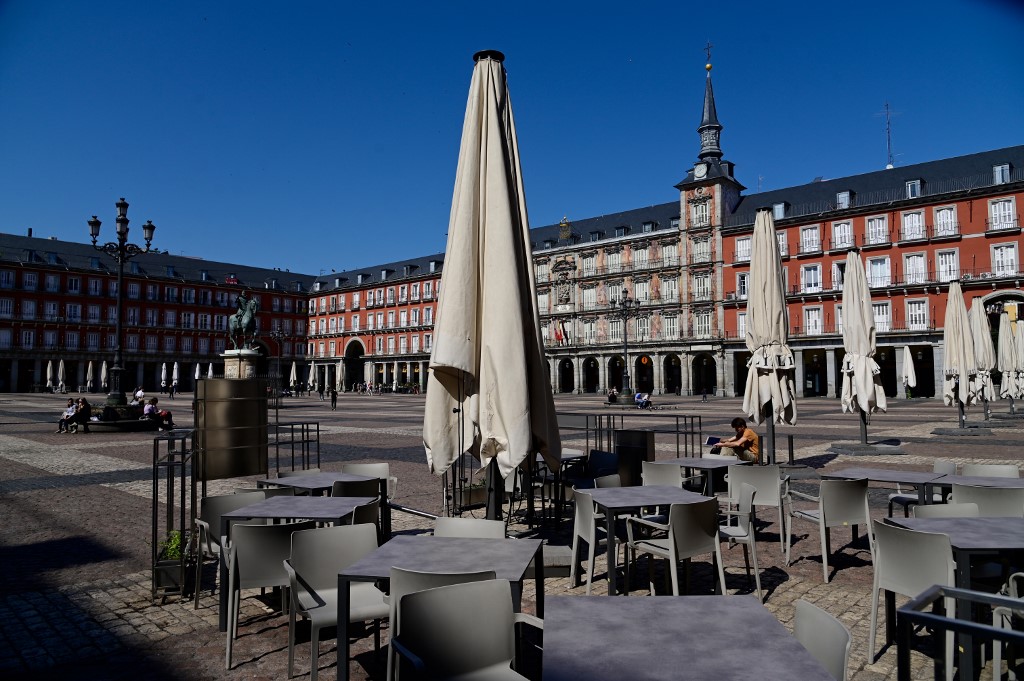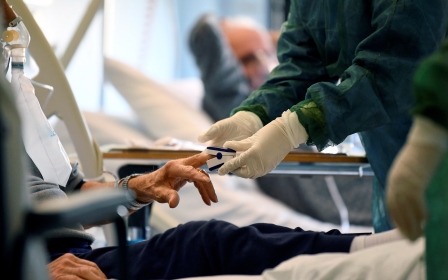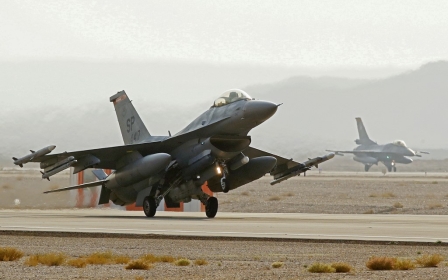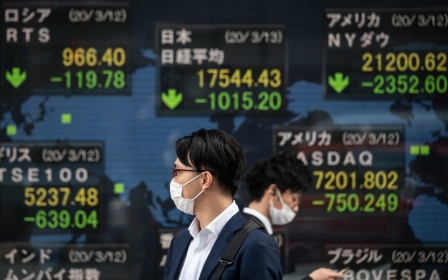How coronavirus could escalate Europe's far-right terror threat
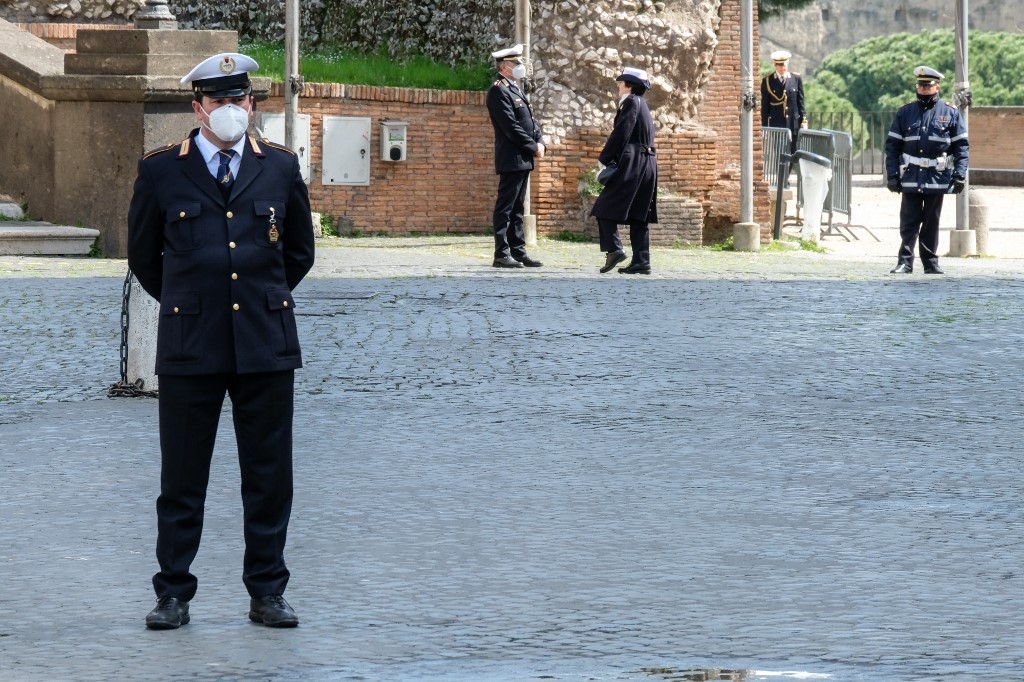
When a right-wing extremist attacked a pair of cafes in Hanau, Germany in February, killing nine mostly Turkish immigrants, the Western world was given yet another tragic reminder that it is in the midst of a right-wing terrorism crisis - one that has spawned dozens of attacks throughout Europe, the US, Canada and Australia over the past five years.
The horrors of Christchurch, New Zealand, which left 51 Muslim worshippers dead in March 2019; El Paso, Texas, which left 22 Hispanic Americans dead in August 2019; the Tree of Life Synagogue in Pittsburgh, which left 11 Jewish worshippers dead in October 2018; and the murder of nine parishioners at a black church in Charleston, South Carolina in 2015 - all serve as a warning for how xenophobic, Islamophobic and antisemitic online conspiracies can radicalise vulnerable white men.
Global economic meltdown
Three cataclysmic events are widely credited for causing a spike in the popularity of far-right groups and political parities in recent years: 9/11, the global financial crisis of 2008, and the 2015 Syrian refugee crisis. “We underestimate the full consequences of the 2008 financial crisis on the politics of western nations as a whole,” scholar Jeffrey Gedmin observed in a 2019 Brookings Institute report on right-wing populism in Germany.
To that end, we must now ponder how much more vicious and pernicious the threat of right-wing terrorism may become, given that the Covid-19 crisis promises to create the worst global economic conditions since the Second World War, at least according to the UN secretary general.
New MEE newsletter: Jerusalem Dispatch
Sign up to get the latest insights and analysis on Israel-Palestine, alongside Turkey Unpacked and other MEE newsletters
If these refugees stay where they are, they will become one of the groups hardest hit by the spread of the pandemic ... If they flee to northern European cities, they will face hostility in the streets
Tens of thousands of people have died from the novel coronavirus in Europe, with Italy surpassing 22,000 deaths and Spain 19,000. Before this pandemic ends, the obituaries for tens of thousands more Europeans will be written.
There is still a great deal of human and economic tragedy in front of us, and right-wing extremist groups and political parties are ready to pounce across the Western world - but particularly in Europe.
Europe knows better than anyone else that right-wing extremism is rooted in deprivation, having seen the rise of fascism in Italy, Spain and Germany in the aftermath of the First World War. The Covid-19 crisis has the continent sitting on a similar powder keg.
“While [the Islamic State] has instructed its members to steer clear of Europe and to constantly wash their hands in hopes of avoiding contracting the novel coronavirus, far-right extremists are discussing how this could be their moment to capitalize on what they see as a potential collapse of society,” journalist Ben Makuch observed in a Vice article.
'Gold' for right-wing extremists
Whereas the Covid-19 pandemic has given non-violent right-wing groups and individuals a custom-fitted meme to further demonise their favourite targets - Jews, Muslims, immigrants, multiculturalism, liberals and international institutions - with coronavirus-related conspiracy theories, neo-Nazi groups are calling the virus a “Jewish trick” that can only be overcome with a resurrection of the Nazi Party.
“The likelihood of violence will increase the longer the crisis goes on,” Levi West, director of terrorism studies at Charles Sturt University in Canberra, told the Sydney Morning Herald. "Food is the only commodity that doesn’t have a substitute. If there’s no petrol, you walk. If there’s no light, you use a candle. But food has no tolerance for its absence, and imposes on you a desperate need.”
West also observes how most of the jobs already lost to the Covid-19 crisis are those in the hospitality sector, including restaurants, cafes and bars, which are typically industries serviced by those who live pay cheque-to-pay cheque.
“If these people don’t get money into their bank accounts soon, and I mean within a week or two, their willingness to play along with civil society starts to shrink,” West noted.
“Imagine the guy who just lost his job: he can’t get work, and finds himself in a queue with people he perceives as ‘migrants’. It doesn’t take much for him to think that ‘the system is structured against people like me … This is gold for them [right-wing extremist groups].”
No good outcomes
If the influx of Syrian refugees into Europe in 2015 sparked a right-wing-populist backlash, imagine what could be unleashed should tens of thousands, or hundreds of thousands, of Covid-19 infected refugees turn up in European cities - a real possibility, given that tens of thousands of displaced men, women and children are packed into squalid camps in Greece, where social distancing, self-isolation and even hand-washing are “fantasy concepts”.
There are no good outcomes here. If these refugees stay where they are, they will become one of the groups hardest hit by the spread of the pandemic, given the inadequate medical facilities in these camps. If they flee to northern European cities, they will face hostility in the streets, as a number of EU countries have experienced surging levels of hate crimes against Muslims in recent years.
“Neo-Nazi accelerationist Telegram channels have increased their calls for destabilisation and violence related to Covid-19,” Joshua Fisher-Birch, a researcher with the US-based Counter Extremism Project, told Al Jazeera. “These channels are treating the current situation … as an opportunity to try to increase tension and advocate for violence.”
If Europe thought it was standing face to face with a right-wing terrorism crisis before Covid-19 hit, then it’s likely to be dealing with one of much larger scale and scope long after the virus has vanished.
The views expressed in this article belong to the author and do not necessarily reflect the editorial policy of Middle East Eye.
Middle East Eye delivers independent and unrivalled coverage and analysis of the Middle East, North Africa and beyond. To learn more about republishing this content and the associated fees, please fill out this form. More about MEE can be found here.



